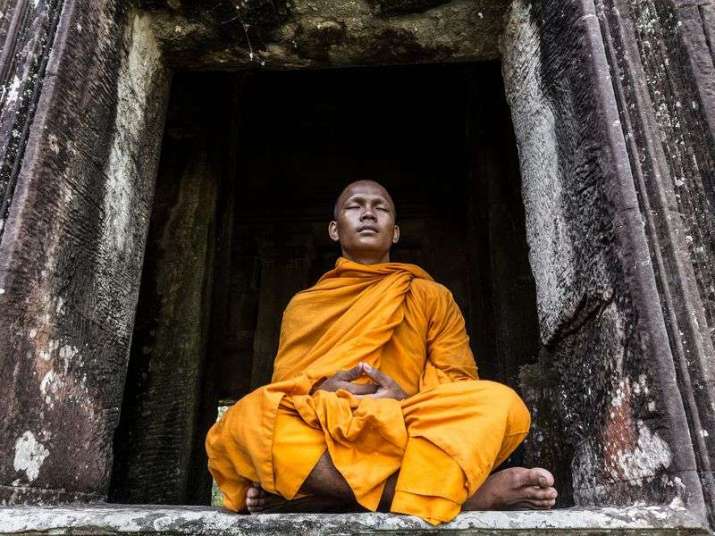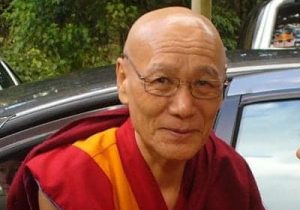
The seven essential principles (satta aparihaniya dhamma), or the seven rules governing conduct, were taught by the Buddha to the Vajjians of Vesali (in present-day Vaishali in Bihar, India). The Buddha gave these teachings during his stay at the Sarandad shrine in Vesali. These seven essential principles prioritize living in unity, solidarity, and righteousness, reflecting the prime concerns of Indian kings of the time. They contain the principles of governing individuals, families, societies, and the state. It is said that if any nation or society follows these seven essential ideals, they will prosper and suffer no defeats.
In the Mahaparinibbana Sutta of the Digha Nikaya of the Pali Canon, these seven essential principles are listed as:
Always gathering together through regular meetings and assemblies;
Attending the meeting in unison and leaving together at the end of the meeting and performing the proposed work of the meeting together;
Refraining from introducing any bad ideas or policies in any organization or state, not omitting any good trends or policies of the past, and to abide by all the traditional laws or policies of the past that have been passed down through the tradition;
Honoring and respecting elders and senior citizens and to obey their orders and advice;
Respecting women and not violating their rights, and according them freedom and autonomy;
Preserving, honoring, and worshiping all the religious locations, shrines, and monasteries in the village or town and not abandoning but keeping active the pre-existing religious activities of the sacred places;
Religiously protecting the arahats and the virtuous religious gurus, arranging the well-being of the arrival of new arahats and inquiring whether the arhats are living in safety.
These seven essential principles were subsequently followed by the Vajjians of Vesali. The Buddha said that no one could defeat the Vajjians as long as they followed these principles.
These seven principles are also important for nations and communities today. When people meet in assemblies in good faith with open hearts and minds, there is unity and solidarity. When a community agrees to attend meetings in an organized manner and perform their general duties unanimously, the principles of unity and solidarity are reinforced.
When a nation refrains from implementing bad policies and ideas, does not do away with good rules and regulations, and follows those rules, regulations, and judgments that are for the welfare for all, the nation prospers peacefully. When a nation respects the elderly and follows their wisdom, there is unity, solidarity and good living. When a state does not abuse women or restrict their rights, everyone can reach their full potential. When a nation respects all religions, there is harmony among the different religions. Finally, when a nation respects religious teachers, the community has trust in the government.
One Buddhist story goes like this: There was a port in the middle of the Ganges. Precious gems were sometimes found in that port and the gems were coveted by the kingdom of Magadha and Vajjians of Vesali. The Vajjians used to go very early in the morning and collect those precious gems because they were united in purpose. Conversely, the people of Magadha, weak in unity, were outpaced and never obtained their share of precious stones. At one point, King Ajatasattu of Magadha, in shame and fury, set out to attack the Vajjian army. He thought that fighting these educated, united, and democratic Vajjians would be fatal and uncertain.
He sought advice from religious teachers on how to defeat and wipe out the Vajjians. He sent greetings to the Buddha through his minister Vassakara. The minister headed to the Buddha’s sangha, greeted the enlightened one and conveyed the message of King Ajatasattu. The king’s idea was that if this matter was beneficial the Buddha would remain silent, if it was harmful he would express his opinion. At that moment, the Buddha repeated the seven essential teachings of the Vajjians. His verbal response was a tacit warning that the king’s idea was harmful. He said that if the Vajjians followed those seven essential principles, there would never be any deterioration in their circumstances.
The minister returned to the kingdom of Magadha at the end of the talk. He told the king everything. The king asked Vassakara what their next step could be. Then the shrewd minister devised a ploy to defeat the Vajjians. He said to the king: “Declare war on the Vajjians in front of our people. I will tell you to be content with your kingdom and let the Vajjians be satisfied with their kingdom, because in war there will be severe loss of lives and territory. You will be angry at me and drive me out of the kingdom with a shaved head as punishment. Then I will tactfully go to the Vajjians and seek refuge.”
So the king executed this ploy on Vassakara, who indeed fled to the Vajjians. He rapidly gained their confidence by regularly associating with them. The Vajjians appointed Vassakara as a judge. He was now in close proximity to the king and his sons. After staying in the palace for few years, he conspired to create factions, stir quarrels, and provoke mutual suspicion in the Vajjian court. The princes began to turn on each other. The Vajjian people were upset by talk of conspiracies and disunity and forgot to follow the seven essential principles. As they quarrelled among themselves, their united front collapsed. This time the clever minister sent a message to King Ajatasattu: “Now is the time to attack.” King Ajatasattu, realizing his opportunity, crushed the Vajjians and destroyed their state.
This story highlights how conflict, internal strife, and intolerance within a country arise when there is a lack of foresight, ignorance, and egoism among the people. Due to mutual enmity and greed for unlimited power and material possessions, people carry out various destructive activities that cripple civic society and national life. This, in turn, renders the state vulnerable to foreign attack and conquest.
If the Vajjians had followed the rituals of the Dharma and the policy of civic unity advised by the Buddha, they and others would not have suffered so much bloodshed. Furthermore, societies and countries should not be hypocritical in maintaining their moral principles, let alone have none at all. Violence and disunity are so destructive because they are both anti-development. Even when pursued for personal gain, intentional violence and dissenstion will rebound back on one’s community karmically sooner or later.
In our uncertain times, if we follow and practice the non-violence teachings of the Buddha and adhere to those seven essential principles, rivalries, factions, and internal strife will disappear. Therefore, prosperity and victory are inevitable for any community or nation if the seven essential principles of the Buddha are followed.
Without righteous principles as a moral and metaphysical grounding, there are no foundations for an ideal social system. When it comes to societal development, moral principles and how they shape society are inextricably linked. Just as a society cannot function well without moral principles, so too morality depends on how seriously a community takes them. Only with mutual reciprocity between these two dynamics can a state thrive, as Vesali did when it followed the seven essential principles.














